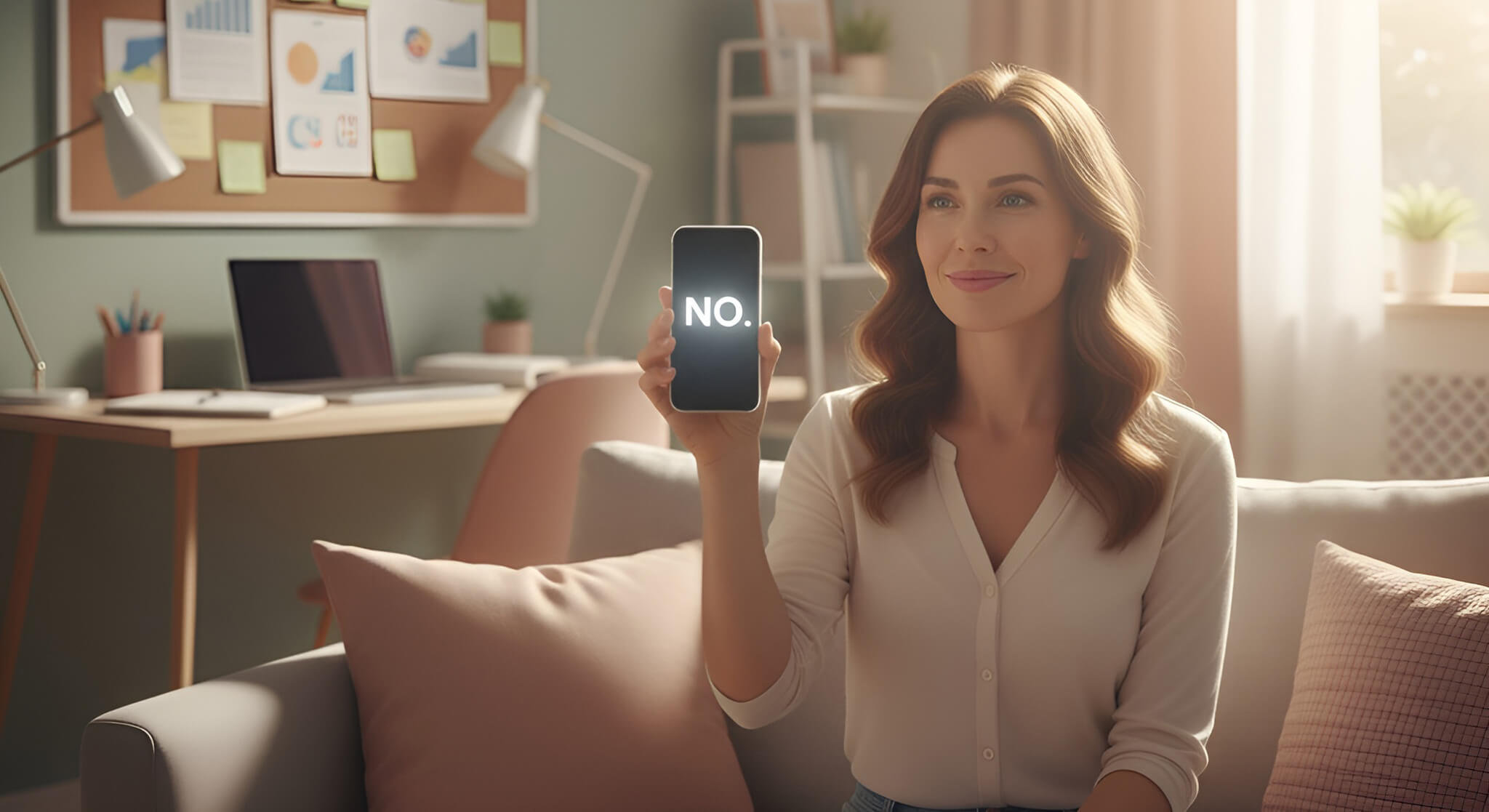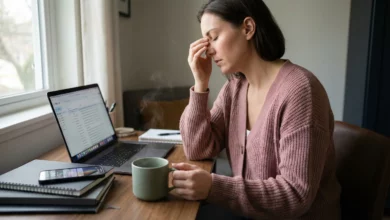Jessica’s Story: How She Cut Her Life’s Stress in Half by Learning to Say “No
Table of contents
- The “Yes-Woman” Burnout: A Story We All Know
- The Turning Point: The High Cost of a Single, Small “Yes”
- The Science of “No”: Why Setting Boundaries is a Biological Necessity
- Jessica’s “Saying No” Toolkit: A Practical Guide
- The “After” Picture: A Life with Boundaries and Breath
- The Verdict: Your “No” is a Profound Act of Self-Care
The “Yes-Woman” Burnout: A Story We All Know
Jessica was the person everyone could count on. The reliable colleague who always took on the extra project, the friend who never missed a birthday dinner, the daughter who always volunteered to help run errands. From the outside, she was successful, capable, and beloved. On the inside, she was drowning in a sea of her own commitments.
Her days were a frantic sprint from one obligation to the next, leaving her with a constant, low-grade hum of anxiety. She was struggling with insomnia, her mental health was suffering, and she felt perpetually overwhelmed. She was living in a state of chronic stress, and her body was keeping the score.
The solution to her burnout wasn’t a new planner or a productivity app. It was a single, two-letter word she had spent her whole life avoiding: “No.” This is the story of how learning to say it changed everything.
This realization that “the solution to her burnout wasn’t a new planner” is a critical distinction. While Comparing Different Planners for Organization and Stress Reduction offers tools to manage existing commitments, Jessica’s story tackles the root cause of the stress itself: the commitments we shouldn’t accept at all.
The Turning Point: The High Cost of a Single, Small “Yes”
The “aha” moment didn’t come during a major crisis. It came on a Tuesday evening. Already overwhelmed with work deadlines, Jessica had agreed to bake two dozen cupcakes for a school event the next day. As she stood in her kitchen at 11 PM, exhausted and covered in flour, she had a sudden, sinking realization: she had just missed the one yoga class she had scheduled for herself that week—her one hour of true self-care.
The thought that hit her was profound and clear:
“In my effort to not disappoint anyone else, I am constantly, deeply disappointing myself.”
She realized her fear of saying “no” wasn’t making her a better person; it was the root cause of her stress and was preventing her from taking care of her own needs.
The Science of “No”: Why Setting Boundaries is a Biological Necessity
Jessica’s realization is backed by science. Every “yes” to something you don’t have the time, energy, or genuine desire for is a small stress event for your body. It triggers a release of the stress hormone, Cortisol. A life filled with too many unwanted “yeses” leads to chronically elevated Cortisol, which is scientifically linked to anxiety, poor sleep, a weakened immune system, and reduced neuroplasticity in the hippocampus.
Saying “no” is not an act of selfishness; it’s an act of managing your body’s resources. It creates the empty space in your calendar and your mind that is required to activate your parasympathetic nervous system—the “rest and digest” state where your body can actually recover and heal.
Jessica’s “Saying No” Toolkit: A Practical Guide
Jessica’s decision was followed by a conscious strategy. She developed a toolkit of phrases and habits to build her “no” muscle.
1. She Started Small
She didn’t start by saying no to her boss. She started by declining a low-stakes social invitation she wasn’t excited about. This small win built her confidence.
2. She Mastered “The Power of the Pause”
She stopped giving an immediate “yes.” Her new go-to phrase became: “Let me check my schedule and get back to you.” This gave her a moment to genuinely assess if she had the capacity and desire, taking the pressure out of the moment.
3. She Developed Her “Gracious No” Scripts
She learned that you can be both kind and firm. Her favorite scripts included:
- “Thank you so much for thinking of me, but I don’t have the bandwidth to take that on right now.”
- “I can’t commit to that fully, but I could help by [offering a smaller, more manageable alternative].”
- “My plate is too full at the moment to give that the attention it deserves, but I’d love to help another time.”
The “After” Picture: A Life with Boundaries and Breath
Jessica’s life didn’t magically become perfect, but it became hers again. The constant feeling of being overwhelmed was replaced by a sense of calm control. She had more time for herself, her deep sleep improved dramatically, and her daily anxiety lessened.
The most surprising benefit? Her relationships actually improved. Her friends and family knew that when she said “yes” now, she genuinely meant it. Her presence became more authentic, and her contributions more valued.
The Verdict: Your “No” is a Profound Act of Self-Care
Jessica’s story is a powerful reminder that much of our stress is not imposed on us, but accepted by us.
Learning to say “no” is one of the most powerful skills you can develop for your mental health and your overall well-being. It is about honoring your own limits and giving yourself the same respect and consideration you so freely give to others. It is the first step in taking your life back.






